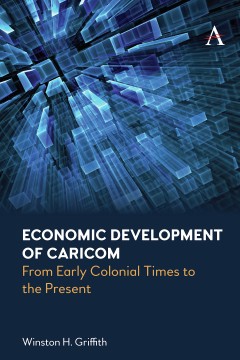Economic Development of Caricom
From Early Colonial Times to the Present
By Winston H. Griffith
- About This Book
- Reviews
- Author Information
- Series
- Table of Contents
- Links
- Podcasts
About This Book
It has been suggested that, if CARICOM nations wish to accelerate their development, they should embrace laissez-faire economic policies. However, laissez-faire economic policies have reinforced the very economic and social structures that have contributed to their low level of development; furthermore, laissez-faire economic policies ignore social attitudes that can greatly influence a nation’s development. Moreover, low-skilled labor-intensive production processes, which once propelled growth in CARICOM nations, will no longer perform a similar role because production processes are becoming more and more knowledge-skills intensive, and nations wishing to attract foreign manufacturing investment or high-tech services may not be able to do so without an adequate pool of the necessary knowledge skills. CARICOM nations must therefore try to accumulate a pool of knowledge skills that can help their economies become internationally competitive.
Reviews
Author Information
Winston H. Griffith, Professor Emeritus, taught economic development, political economy of the Caribbean, international economics, and international finance at Bucknell University.
Series
Table of Contents
List of Illustrations; Acknowledgments; Introduction; 1. Economic Smallness; 2. Agriculture; 3. Industrialization; 4. Export Tourism; 5. Economic Integration; 6. Commercial Banking; 7. Education; 8. Role of Government; Conclusion; Notes; References; Index.
Links
Stay Updated
Information
Latest Tweets



